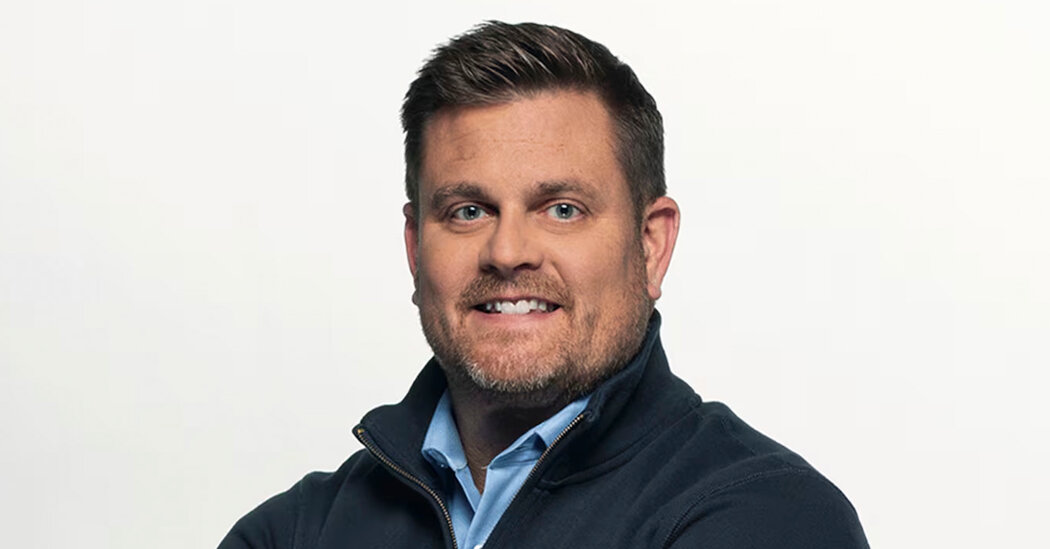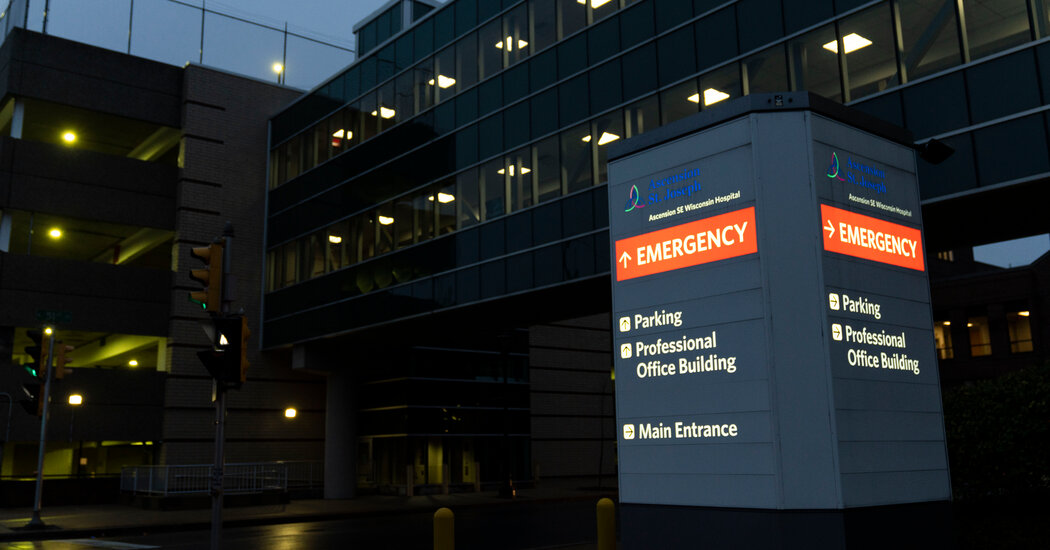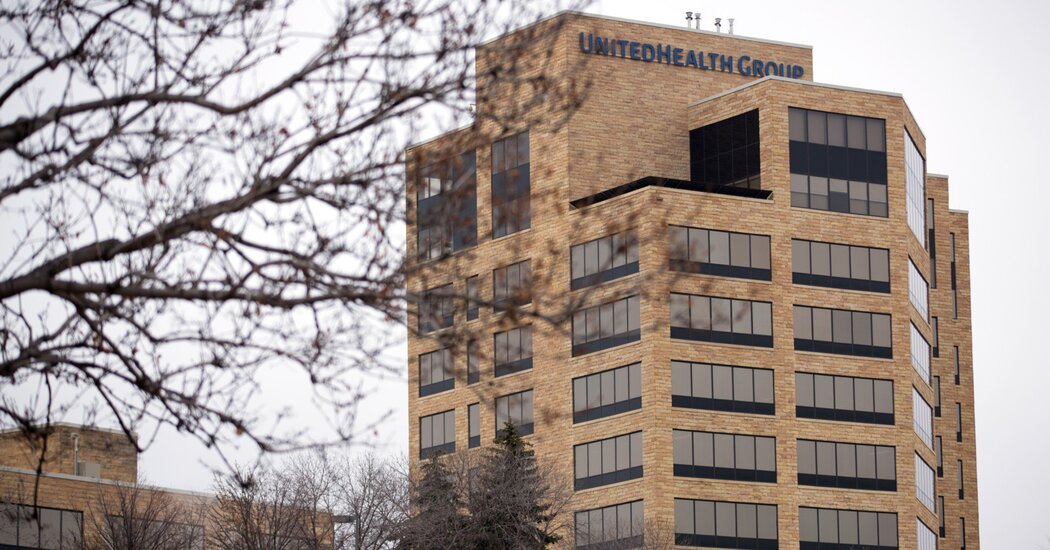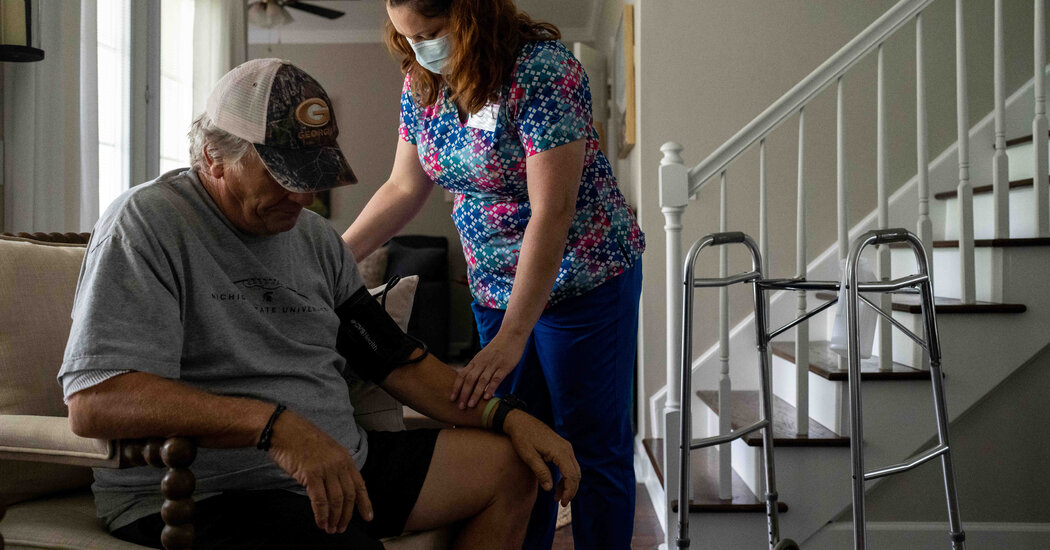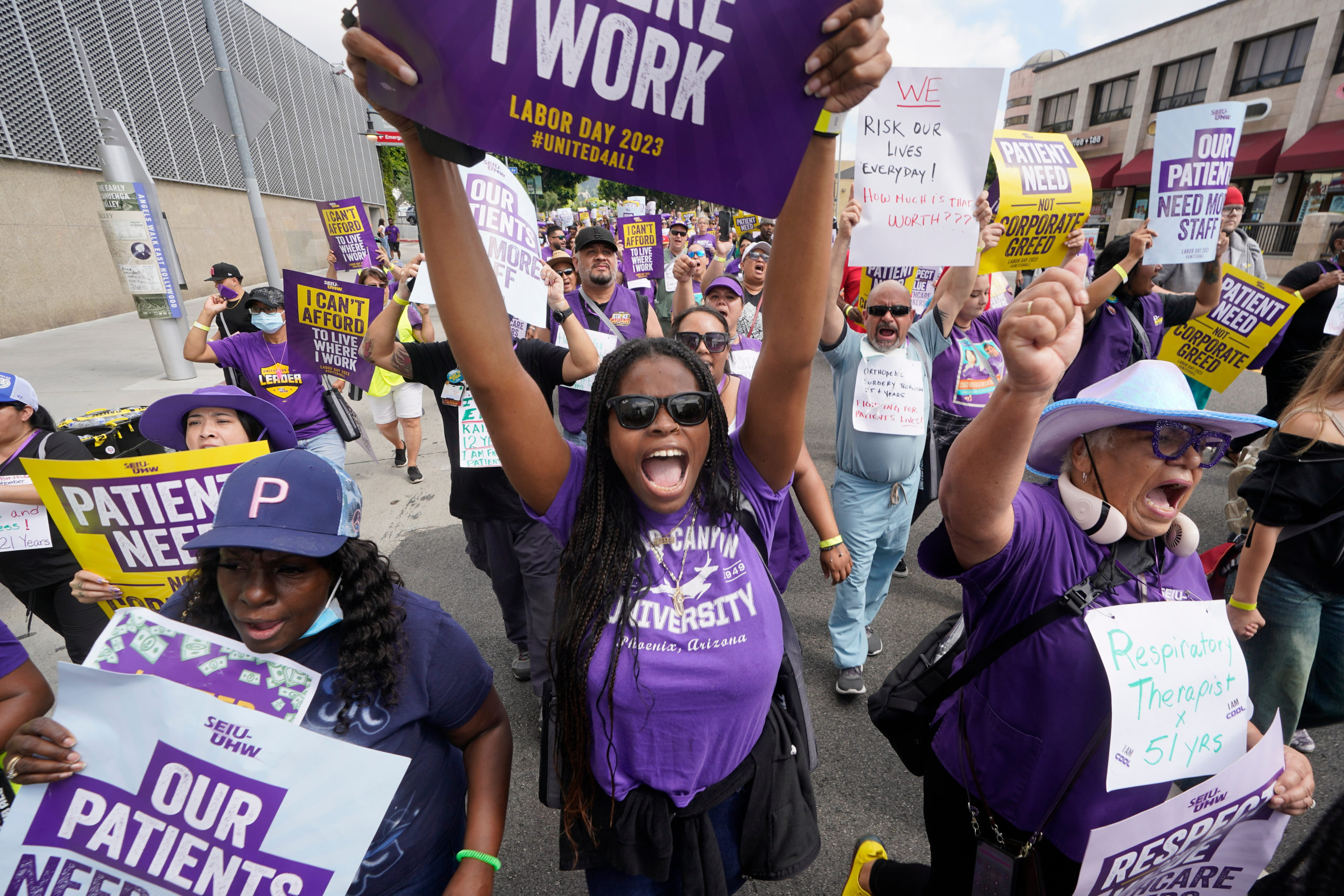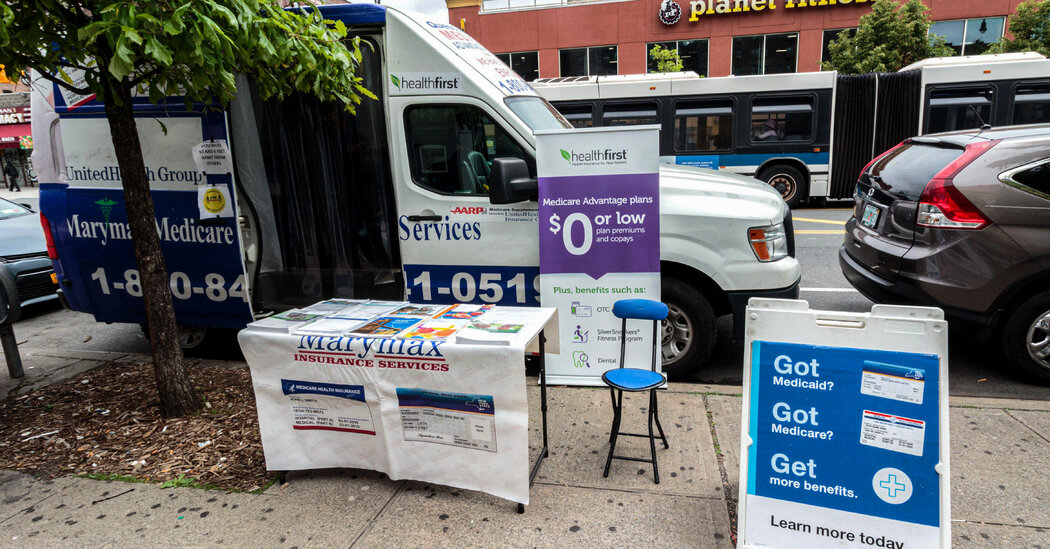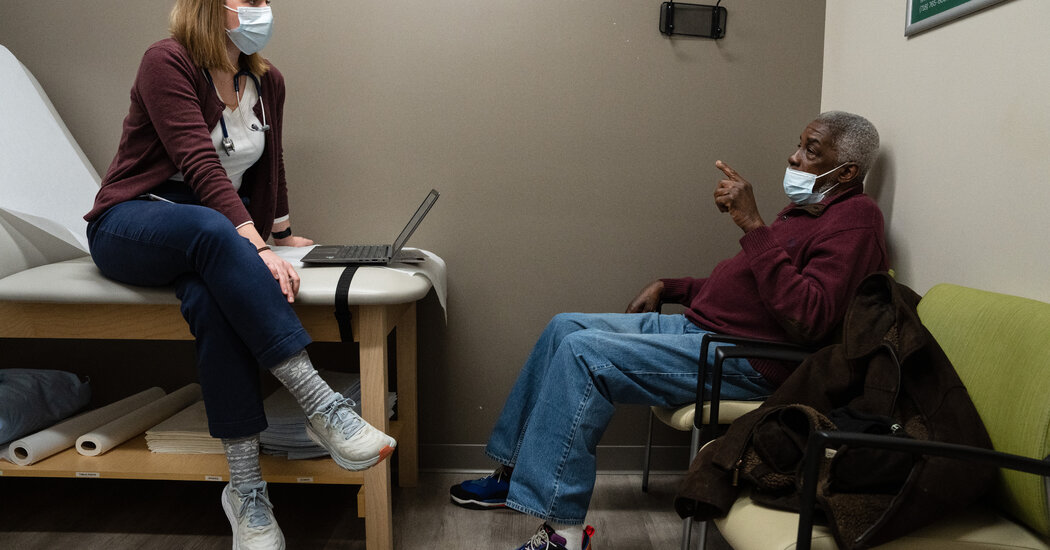Large health insurers and other companies are especially keen on doctors’ groups that care for patients in private Medicare plans.It’s no surprise that the shortage of primary care doctors — who are critically important to the health of Americans — is getting worse.They practice in one of medicine’s lowest paid, least glamorous fields. Most are overworked, seeing as many as 30 people a day; figuring out when a sore throat is a strep infection, or managing a patient’s chronic diabetes.So why are multibillion-dollar corporations, particularly giant health insurers, gobbling up primary care practices? CVS Health, with its sprawling pharmacy business and ownership of the major insurer Aetna, paid roughly $11 billion to buy Oak Street Health, a fast-growing chain of primary care centers that employs doctors in 21 states. And Amazon’s bold purchase of One Medical, another large doctors’ group, for nearly $4 billion, is another such move.The appeal is simple: Despite their lowly status, primary care doctors oversee vast numbers of patients, who bring business and profits to a hospital system, a health insurer or a pharmacy outfit eyeing expansion.And there’s an added lure: The growing privatization of Medicare, the federal health insurance program for older Americans, means that more than half its 60 million beneficiaries have signed up for policies with private insurers under the Medicare Advantage program. The federal government is now paying those insurers $400 billion a year.“That’s the big pot of money everyone is aiming at,” said Erin C. Fuse Brown, director of the Center for Law, Health & Society at Georgia State University, and an author of a New England Journal of Medicine article about corporate investment in primary care. “It’s a one-stop shop for all your health care dollars,” she said.Many doctors say they are becoming mere employees. “We’ve seen this loss of autonomy,” said Dr. Dan Moore, who recently decided to start his own practice in Henrico, Va., to have more say in caring for his patients. “You don’t become a physician to spend an average of seven minutes with a patient,” he said.The absorption of doctor practices is part of a vast, accelerating consolidation of medical care, leaving patients in the hands of a shrinking number of giant companies or hospital groups. Many already were the patients’ insurers and controlled the distribution of medicines through ownership of drugstore chains or pharmacy benefit managers. But now, nearly seven of 10 of all doctors are either employed by a hospital or a corporation, according to a recent analysis from the Physicians Advocacy Institute.The companies say these new arrangements will bring better, more coordinated care for patients, but some experts warn the consolidation will lead to higher prices and systems driven by the quest for profits, not patients’ welfare.Sara Beth Campos, left, a clinic educator, trained Katie Robertson, a new nurse assistant, at Neighborhood Health Center in Oregon City, Ore.Mason Trinca for The New York TimesInsurers say their purchase of medical practices is a step toward what is called value-based care, with the insurer and doctor paid a flat fee to care for an individual patient. The fixed payment acts as a financial incentive to keep patients healthy, provide more access to early care and reduce hospital admissions and expensive visits to specialists.The companies say they favor the fixed fees over the existing system that pays doctors and hospitals for every test and treatment, encouraging doctors to order too many procedures.Under Medicare Advantage, doctors often share profits with insurers if the doctors take on the financial risk of a patient’s care, earning more if they can save on treatment. Instead of receiving a few hundred dollars for an office visit, primary care doctors can be paid as much as $14,000 a year to manage a single patient.But experts warn these major acquisitions threaten the personal nature of the doctor-patient relationship, especially if the parent company has the authority to dictate limits on services from the first office visit to extended hospital stays. Once enrolled, these new customers can be steered toward chains of related businesses, like a CVS drugstore or Amazon’s online pharmacy.UnitedHealth Group is a sprawling example of consolidated services. It owns the major insurer that has nearly 50 million customers in the United States and oversees its ever-expanding subsidiary, Optum, which has bought up networks of doctors and medical sites. Optum can send patients from one of its roughly 70,000 doctors to one of its urgent care or surgery centers.Senator Elizabeth Warren, Democrat of Massachusetts, is urging the Federal Trade Commission to take a closer look at some of these large deals, which regulators have so far not blocked on antitrust grounds. “I fear that the acquisition of thousands of independent providers by a few massive health care mega-conglomerates could reduce competition on a local or national basis, hurting patients and increasing health care costs,” she wrote to regulators in March.This consolidation of medical care may also run afoul of state laws that prohibit what is called corporate medicine. Such statutes prevent a company that employs doctors from interfering with patient treatment.And experts warn of the potential harm to patients, when corporate management seeks to control costs through byzantine systems requiring prior authorization to receive care.Karen S. Lynch, chief executive of CVS Health, said primary care doctors lower medical costs. “Primary care drives patient engagement and positive clinical outcomes,” she said.Charles Krupa/Associated PressFor example, Kaiser Permanente, the giant nonprofit health plan that also owns physician groups, settled a malpractice case for nearly $2.9 million last year with the family of Ken Flach, a former tennis player who contracted pneumonia and died from sepsis after a Kaiser nurse and doctor would not send him for an in-person visit or to the emergency room, despite the urgent pleading of his wife. Kaiser said medical decisions are made by its providers in consultation with their patients and said its “deepest sympathy remains with the Flach family.”Doctors also chafe at oversight that does not benefit patients. “They are trying to run it like a business, but it’s not a business,” said Dr. Beth Kozak, an internal medicine doctor in Grand Rapids, Mich.Her doctors’ group has teamed up with Agilon Health, an investor-owned company, to work with Medicare Advantage plans. Dr. Kozak said she has to work longer hours, not to provide better care, but to supply additional diagnoses for patients, which increases federal reimbursements under the Medicare Advantage program. “It’s not because I’m giving better patient care,” she said. “It’s all tied to the billing.”The corporate consumption of medical care keeps growing. Walgreens Boots Alliance, one of the largest U.S. pharmacy operations, spent $5 billion for a majority stake in VillageMD, a primary care group, and teamed with Cigna to buy another medical group for nearly $9 billion. And short of an outright purchase, UnitedHealth is partnering with Walmart to offer care to older patients.In promoting the benefits of buying Oak Street clinics to investors, Karen S. Lynch, the chief executive of CVS Health, said primary care doctors lower medical costs. “Primary care drives patient engagement and positive clinical outcomes,” she said.Many of these companies are building chains of clinics. On a recent tour of an Oak Street clinic in Bushwick, one of 16 centers opened since October 2020 in New York City, patients were typically seen from 8 a.m. to 5 p.m., with a nurse available after hours to field questions.Ann Greiner, the chief executive of the Primary Care Collaborative, a nonprofit group, defended the recent forays by private companies into this field of health care, saying they are infusing practices with sorely needed funds and may improve access to care for people in underserved areas.Discussing a patient’s file at Oak Street Health in Bushwick, one of 16 centers opened since October 2020 in New York City.James Estrin/The New York Times“The salaries of the folks in those arrangements are higher,” she said. “They are providing more comprehensive care in many of those arrangements. They are providing more tech and more team-based care. That’s all investment.”But these deals also risk shifting the balance from quality treatment to profits, she said.In recent years, some have invoked the laws banning corporate medicine to challenge these large-scale private operations. Envision Healthcare, a private equity-backed company that employs emergency room doctors, is being sued in California by a unit of the American Academy of Emergency Medicine, a professional group that supports independent practices, accusing it of violating that state’s provisions.“Envision exercises profound and pervasive direct and indirect control and/or influence over physicians practice of medicine, ” according to the lawsuit. The suit maintains that Envision controls the doctors’ billing and establishes medical protocols.While Envision would not comment on the litigation, it said it “follows an operating structure that is common across the health care sector and widely used by nonprofit, privately held and public groups as well as hospitals and insurers.”The big insurers find doctors’ groups particularly attractive, although many have reported sizable losses. The acquisition of Oak Street, which has lost more than $1 billion over the last three years, could help CVS’s Medicare Advantage plans improve their quality or “star” ratings and increase payments for one of its plans.Even small numbers of patients can translate into significant revenue. One Medical, the company Amazon owns, is best known for sleek clinics. The company scooped up a practice specializing in Medicare Advantage. Only about 5 percent of One Medical’s 836,000 members are enrolled in that federal program, but roughly half of its revenue comes from that tiny slice of patients, according to its 2022 financial statements.Regulators are already flagging questionable methods employed by some practices. In November 2021, Oak Street disclosed that the Justice Department was investigating sales ploys like free trips to its clinics and payment of insurance agents for referrals. One doctor at a center described recruiting patients with “gift cards, swag and goody bags,” according to a shareholder lawsuit against Oak Street.“We’re dealing with incredible levels of burnout within the profession,” said Dr. Maxwell Cohen, a doctor at Neighborhood Health Center in Portland, Ore.Mason Trinca for The New York TimesThe lawsuit detailed concerns that doctors were inflating the payments from the federal government by overstating how sick their patients were.Oak Street says it has not been accused of any wrongdoing by the Justice Department and says the lawsuit is “without merit.”These private Medicare Advantage plans have been heavily criticized for racking up enormous profits by inflating costs and exaggerating patients’ illnesses to charge the government more than they should.Under new rules, the Biden administration would eliminate some of the most problematic, overused diagnoses, and doctors and insurers could earn less.But other pathways to profit also explain why corporations covet these deals. Unlike the caps on insurers’ moneymaking, where a Medicare Advantage insurer has to spend at least 85 cents of every dollar on patient care, there are no limits to how much profit these doctor practices and pharmacy chains can make.It may be too soon to determine whether consolidated care will improve patients’ health. “So far, when you look across the industry, the record of these acquisitions has been mixed,” said Dr. Sachin H. Jain, the chief executive of SCAN Group, a nonprofit based in Long Beach, Calif., that offers Medicare Advantage plans.And the investments may not halt the rapid disappearance of the doctor still sought by so many people for ordinary care, including a recent report showingfewer medical school graduates going into the field.“We’re dealing with incredible levels of burnout within the profession,” said Dr. Max Cohen, who practices near Portland, Ore. Since the pandemic, his low-income patients have become much sicker, he said, with the level of illness “through the roof.”
Read more →

